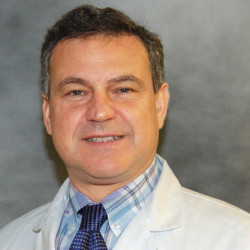THE BUSINESS OF HEALTH CARE: A hot topic in higher education – and today’s job market
July 27th, 2016
With the advent of federal health insurance reform, the fields of medicine and business have become inextricably linked as health care providers strive to understand the business of medicine.
Here in South Florida both Florida Atlantic University and Florida International University are in the planning stages for offering dual postgraduate degrees between their colleges of business and medicine/health care.
“Today, it’s the business of medicine our students are trying to understand because the Affordable Care Act (ACA) changed things,” says Miriam Weismann, academic director of the Health Care MBA program at FIU. “Business
and medicine have to be connected since legislation and regulation are changing the model of health care delivery.”
Whether students are just getting started as undergraduates or are employed in the healthcare field, they see education as the best way to find a good job or advance their careers once they graduate.
According to the federal Bureau of Labor Statistics, employment in healthcare occupations is projected to grow by 19 percent through 2024, with the addition of about 2.3 million new jobs – significantly faster than the average for all occupations. Because the population is aging and since more people have health insurance due to the ACA, health care will add more jobs than any other group of occupations.
Higher education is adjusting to the increasing number of students seeking to improve their chances of winning one of these converted positions. Combining health care skills with knowledge of business and management procedures can provide a leg up in today’s competitive job market.
“At FAU, we see a good mix of students who are coming back to continue their education,” says Alan Whiteman, associate director of the Health Administration Management program at the university’s College of Business, which offers bachelor’s and master’s degrees in Health Administration.
“Our students include people who are working as a nurse or a physical therapist and want to move to the next level in their careers,” Whiteman says. “Today, moving into a management position in health care is almost impossible without an advanced degree.”
Two years ago, FAU added an Executive Master’s of Health Administration (EMHA) to the traditional MHA degree already offered through the College of Business. The executive degree makes it possible for working students to
complete a degree program in health administration in two years or less, similar to FAU’s Executive MBA program.
That flexibility was one of the factors that attracted Jonathan Shaw, a registered nurse who works in a Miami-Dade County emergency room, to FAU’s EMHA program.
“I’m hoping to advance my career once I graduate in December,” says Shaw, a Coral Springs resident and married father of three. His experience working in the hospital will be valuable when he is being considered for other positions, he says. “I’m trying to combine my hospital experience with what I am learning at FAU.”
The increasing demands on nurses today mean that employers prefer to hire nurses with bachelor’s degrees (BSN), rather than nursing certificates or hospital diplomas. Projections call for the current shortage of qualified nurses to continue, with the demand for nurses with master’s and doctorate degrees for advanced practice, clinical specialties, teaching, and research roles far outpacing the supply. In South Florida, there are many nursing programs available offering bachelor’s and master’s degrees and beyond, but experts say it still is not enough to fill the expected need.
The shortage of qualified nurses, doctors and other health care professionals also stems from changes in the Medicare system. While the ACA affected health care reimbursement, it was the approval of the Balanced Budget Act of 1997 that impacted the healthcare system itself most dramatically, says Dr. Frederick Littman, chancellor of the health professions division at Nova Southeastern University for the past 30 years.
It led to services provided by professionals such as nurse practitioners, physician’s assistants and rehabilitation therapists being offered to patients outside of doctors’ offices. As a result, demand for education in these areas increased significantly, Littman says, leading to an increase in the number of healthcare-related programs offered at NSU, as well as the creation of the College of Nursing and the College of Dental Medicine. The university also offers one of the four Pharmacy degree programs in the state, as well as a degree in Optometry.
“We saw that there was this tremendous need” for health care education, Littman says. “We feel we’ve been very strategic – not just providing programs to create revenue, but creating programs where this need exists.”
The number of potential patients continues to increase, as does the demand for qualified employees by healthcare employers.
Keeping pace with that demand is one reason Melissa Whelchel decided to enroll in FAU’s Executive Master’s of Health Administration program. An administrator at Boca Raton Regional Hospital (BRRH). Whelchel says she was one of the first students to sign up for the program after it was launched.
“I knew in health care, those letters after your name really do matter,” she says, referring to the “MHA” that now follows her name in hospital correspondence. Her peers at BRRH tended to have graduate or law degrees and Whelchel says she knew that if she wanted to get ahead, she would need an advanced degree to be competitive.
The program provided her with a refresher about some of the ongoing issues in health care, and updated her about the new requirements in insurance and payment systems following the ACA. “Plus I was able to apply what I was
learning about at school to what I was doing at work. And I used some of my projects at work as the basis for papers I wrote for school. This program really worked for me.”
Following her graduation, Whelchel was promoted to Director of Strategic Development at BRRH, and says she continues to apply information she learned at FAU to her current job responsibilities. A large number of doctors and nurses are choosing to expand their knowledge of business at FIU, says Weismann, also a professor at the school’s College of Business, which offers a Healthcare MBA degree. “They get the benefit of studying for both the MHA and the MBA degree, which provides our students with a competitive edge once they graduate,” she says. “If you don’t understand the business of health care, you can’t compete in today’s marketplace.”
Source: Sun-Sentinel


Leave a Comment